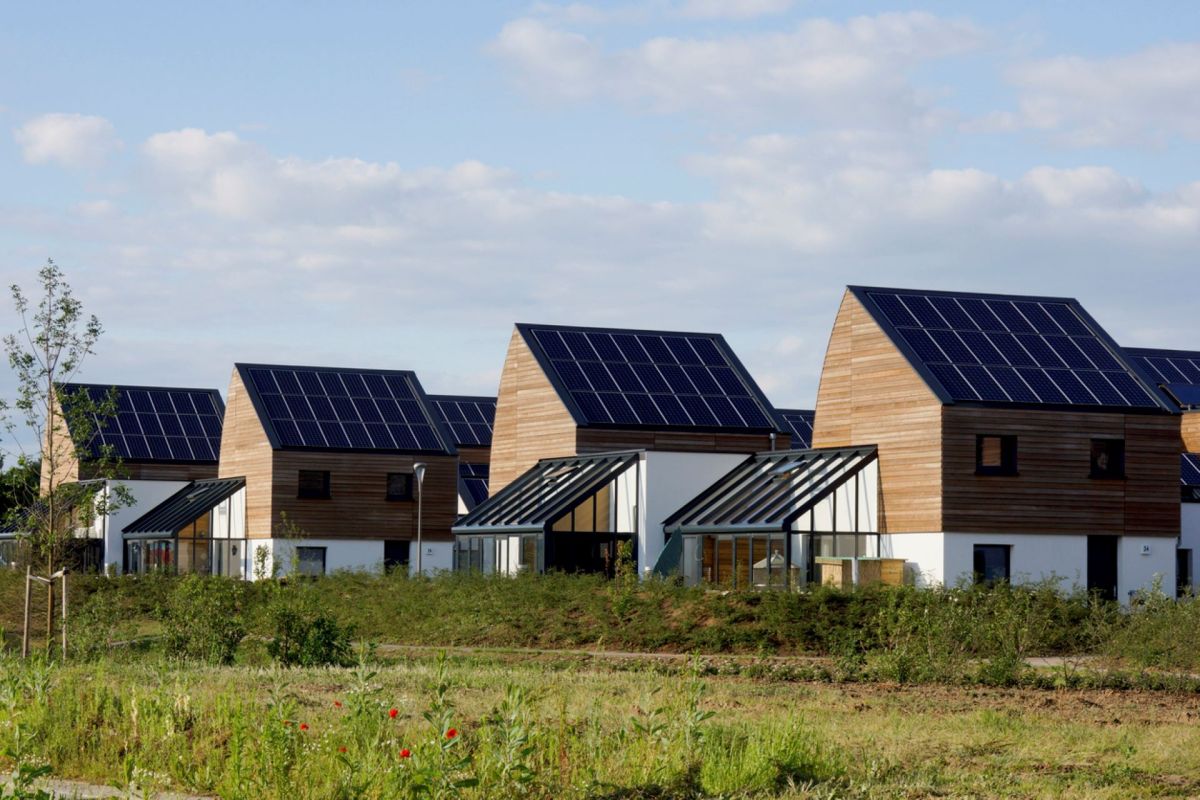A city in Florida has approved a new development that could save residents money and help the planet at the same time.
The Lakeland, Florida, project, which is named Myrtlebrook, will be a collaboration between housing developer Highland Homes, microgrid developer BlockEnergy, and utility company Lakeland Electric. The latter is funding the $4.2 million pilot project and will be its owner-operator.
Myrtlebrook will include 77 homes that are outfitted with solar panels and linked together to form a community microgrid. That means that not only will they passively generate their own electricity from a clean, renewable resource — the sun — but they will also be able to pool their harvested solar energy in a central battery storage unit, even feeding excess power back into the grid. The solar panels will also save the residents money in utility costs.
In addition, the system provides the entire community with on-site backup power, meaning that it is less likely to experience blackouts during heavy storms — no small concern in Florida, where the already frequent storms are only getting worse because of human-caused changes in weather patterns.
"Because the generation happens right in the neighborhood, we are less susceptible to grid outages," Michael Dammer, manager of emerging technology at Lakeland Electric, told an ABC News affiliate. "Which means our customers are less likely to see a blackout due to storms or squirrels or any sort of outside car versus pole type of situation."
A similar Florida community called Babcock Ranch, which describes itself as the "world's first solar–powered town," has been able to keep the lights on during hurricanes even as surrounding grids lost power for days.
The groups behind Myrtlebrook hope to begin construction next year and finish in late 2025 or early 2026.
"Makes me think of Babcock Ranch, the solar town which survived Hurricane Ian so well. Babcock, I think, was even designed with homes raised above streets, with the streets handling runoff. Preserved wetlands around the town. Lots of smart planning, and it paid off," wrote one Electrek commenter.
"As an insurance guy, I could not agree more with that," wrote another. "After a hurricane, lacking power is one of the biggest hurdles. If those houses can get by on 77% of power, maybe by being careful and reducing AC use, they could make by while their whole community will be out of power for likely weeks and even months in some cases."
Join our free newsletter for weekly updates on the coolest innovations improving our lives and saving our planet.









